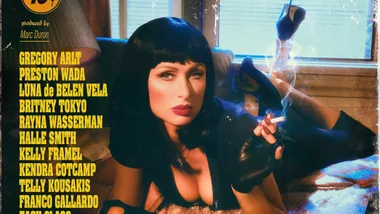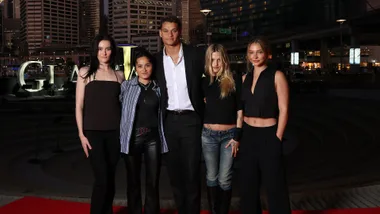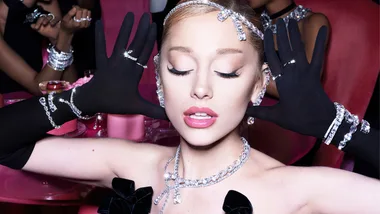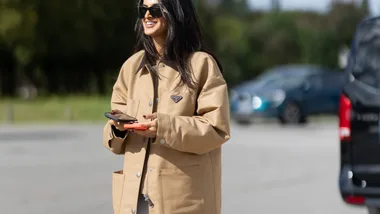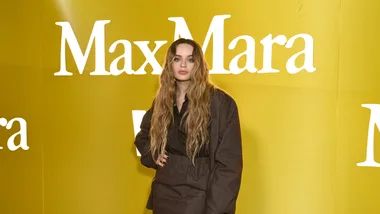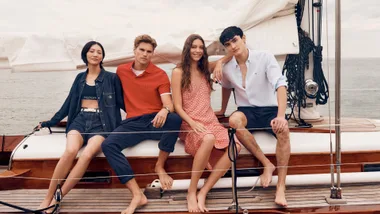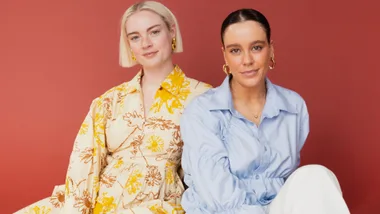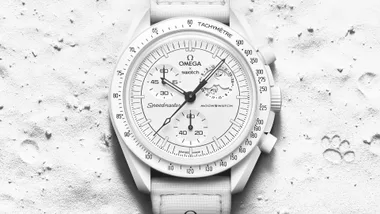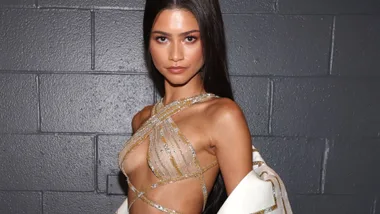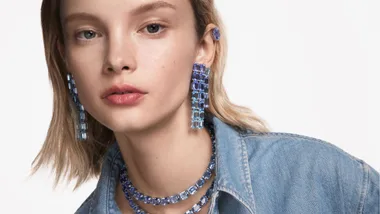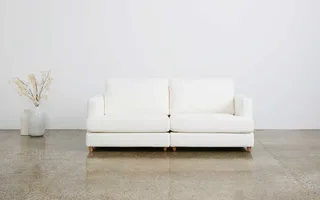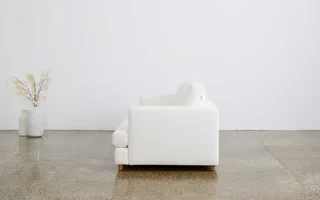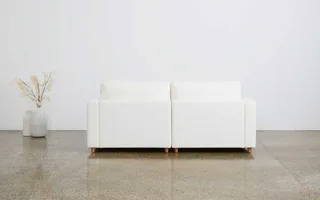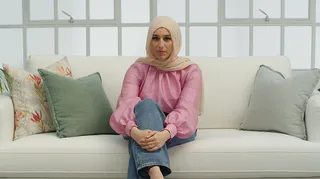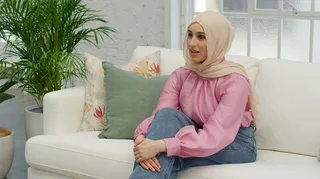As part of marie claire’s Speak (Un)easy video series, in partnership with koala, we’re asking some well-known individuals to open up about some uneasy topics and have some uncomfortable conversations (from the comforting space of a koala sofa) to help raise awareness, change behaviours and push us forward. Because as a nation, as a community, as a people, we can do more to ensure that no matter who you love, where you come from or what you believe in, you feel comfortable living in Australia.
Nawal Sari is passionate about using her influence to change perceptions of modest dressing.
The 21-year-old student and content creator has been posting chic outfit pics, beauty tutorials and beautifully-curated images to her Instagram account since 2017.
At the time, she was 18 and one year into wearing the hijab, but lacking any kind of relatable fashion inspiration—so she set about creating her own platform to modernise the notion of modest dressing and make a place for herself and other Muslim women in mainstream media.
Three years on, she’s got a loyal following—or sisterhood, as she prefers to call it; community and culture are at the core of everything she does—with over 200,000 followers across Instagram and YouTube.
While it’s an empowering example of self-motivation and self-expression, there’s still more to be done so we handed the mic to Nawal to talk more about driving change through fashion.
Hit play on the video above to hear what Nawal Sari has to say about modest fashion, representation within the media, religion and the importance of sharing the mic with minority groups and listening to other people’s narratives; read her full interview below.
What do you strive to achieve through your posts and your fashion?
“Modest fashion has a stigma of being oppressive and I think myself and many other Muslim creatives are proving otherwise. When I initially decided to wear the hijab as a teenager, I thought there wouldn’t be a place for me in the fashion industry, but I see this changing, which is incredible. There aren’t many models in Australia who are visibly Muslim and wear the hijab, but I want Muslim women everywhere to know that they are beautiful and that it’s ok to be self-expressive and empowered and that there’s a place for them everywhere.”
“I didn’t feel like I had anyone to look up to outside of my family when I was transitioning into wearing the hijab so it’s really important to me that I’m open and honest and I’m creating a little sisterhood online. “
Have there been times where you’ve uncomfortable being a public advocate for modest dressing?
“There have been times where I have been uncomfortable doing what I do, but I think that’s a part of the process and a part of the growth. Seeing negative comments about the way I dress or how I should dress is hard—no woman should have to hear that. But, I know if I receive a hate comment about my religion, or the way I dress, it’s mainly due to the lack of education and intolerance we consume. I think it’s a personal decision how people want to use their platforms, but I hope we all can use the influence we have to positively impact the world.”
Why do you think talking about religion makes some people uncomfortable?
“I think the lack of awareness and education on minority groups is a global issue. But we’re allowing more and more community members and to have the mic, to talk for themselves and express themselves. Social media has been a true leader in that sense; it’s given a range of diverse public figures the opportunity to paint their own narratives and rightly educate.”
“Seeing negative comments about the way I dress and how I should dress—no woman should have to hear that.”
Who do you admire for speaking up even when it’s uncomfortable?
“Ibtihaj Muhammad and Halima Aden. They’re both unapologetically Muslim; they’ve paved the way for so many Muslim women and are always so brave.”
You’re very open and real on your platform, why’s that so important?
“I have an authentic relationship with my audience. They have always been so supportive of me. When I’m balancing creative work with uni and my personal life, I’m not scared to share how I feel—I think it’s unhealthy to pretend I’m always okay. That honesty is important, it’s what the platform relies on. I’d like to think it’s given Muslim women, or women who are like-minded, the confidence to express themselves whilst also working to diversify the Australian media.
“I think it’s a personal decision how people want to use their platforms, but I hope we all can use the influence we have to positively impact the world.”
Shop the koala coastal sofa now:
Brought to you by koala, a brand that sees comfort as a state of mind, that can only exist when someone is truly welcome, respected and acknowledged in the place they call home.
Nawal sits on the koala 3-seater coastal sofa in Milk Bar, which is comfortable and stylish. Also available in Billabong (blue). Ottoman sold separately.
Koala. For every home among the gum trees.
